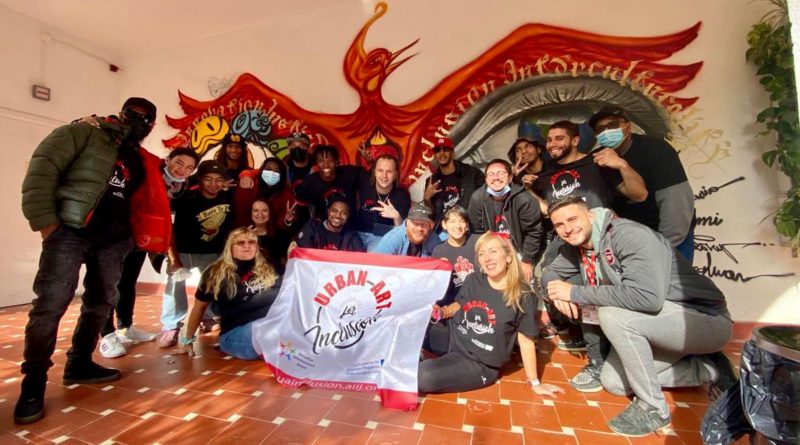Training Course in Malaga (Spain)
After months of online work and local activities in each project country, last week we could implement the first international mobility of our “Urban Art for Inclusion” project: the International Training Course.
21 people participated in the Training hosted by Iniciativa Internacional Joven in Malaga (Spain). The profile of the participants was 3 youth workers/professionals in the field of youth per organisation, with at least 2 artists from different elements of hip hop culture. Participants came from different backgrounds and many of them were migrants and/or have a familiar history of migration.
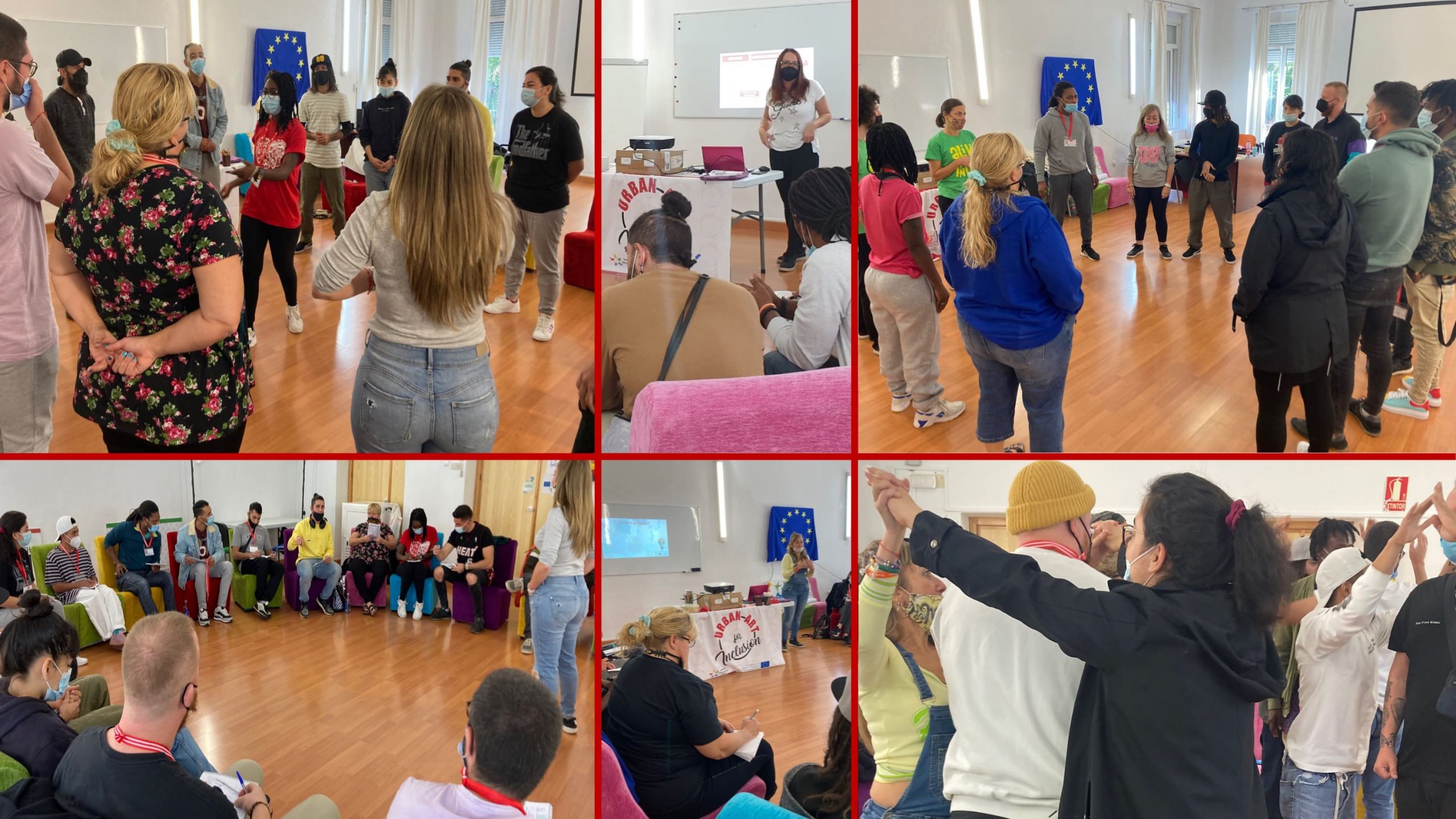
The main objectives of the Training Course were:
‑To improve key competences of participants for their personal and professional development;
‑To provide participants new knowledge and skills so they are able to carry out their projects/activities of social transformation;
‑To offer and exchange tools to raise awareness about the inclusion of migrants through urban art;
‑To foster cooperation and exchange of knowledge, good practices and competences on among Programme Countries and other countries of the world.
The Training began with the presentation of participants and team, name games and team building activities to support the creationg of a comfortable working atmosphere and a space of mutual exchange among participants. Representatives of the Andalusian Youth Institute, which is part of the Spanish National Agency of the Erasmus+ Programme, of the Centro de Innovación Social “La Noria” and of the Diputación Provincial de Málaga (provincial government of the province of Málaga) welcomed participants officially.
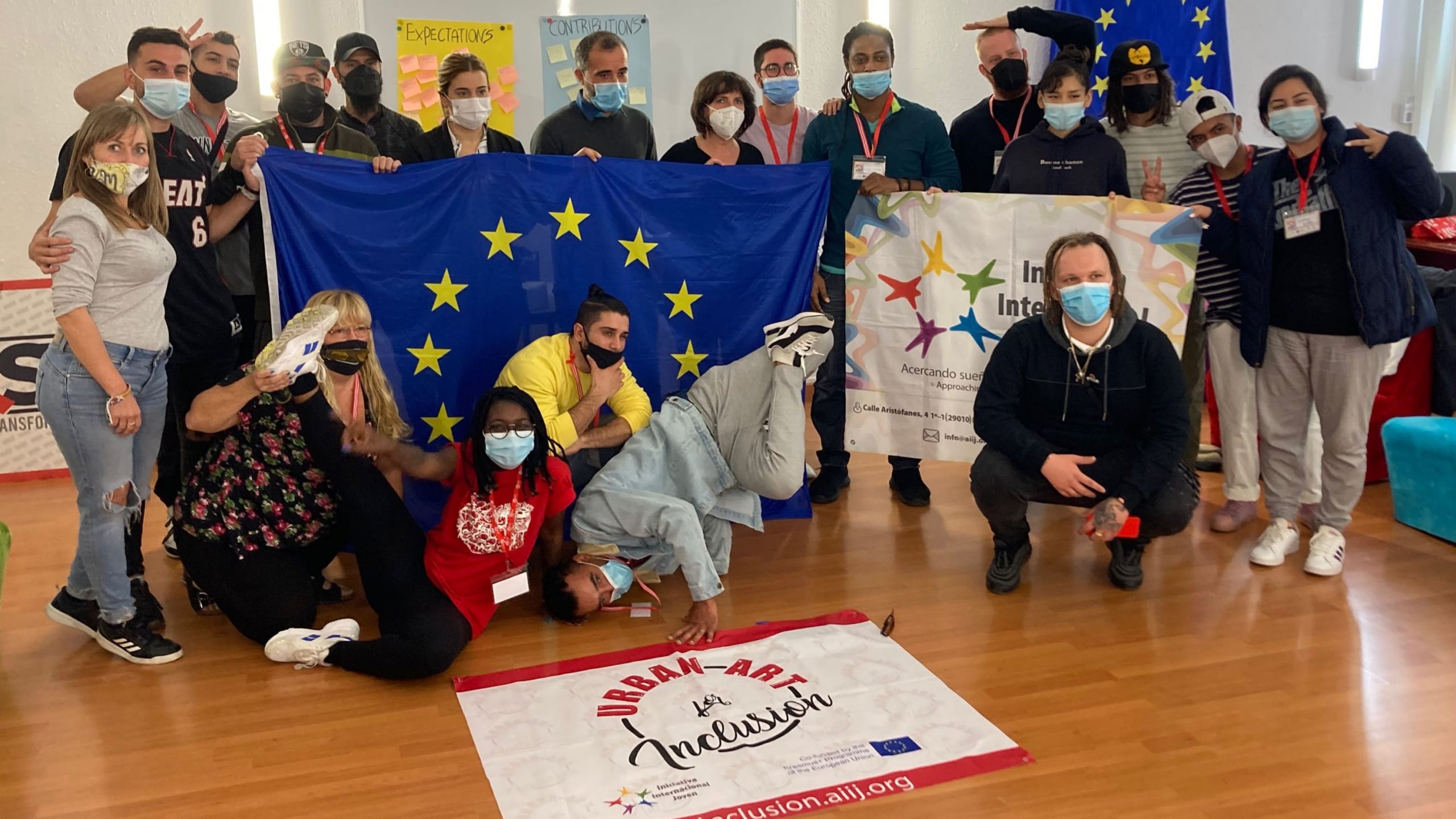
After the presentation of the Training Course, participants could express their expectations connected with this mobility and how they could contribute to it. They presented their sending organisations and main activities connected with the project topics; it was very inspiring to know it as some activities or projects can also be replicated in other countries/organisations. During the afternoon, participants presented the good practices and the analysis of the situation, which were very interesting to know and supported the reflection of participants on the topic. Finally, at night we organised an Intercultural Dinner where participants could taste traditional food and share products from all project countries and/or participants’ cities.
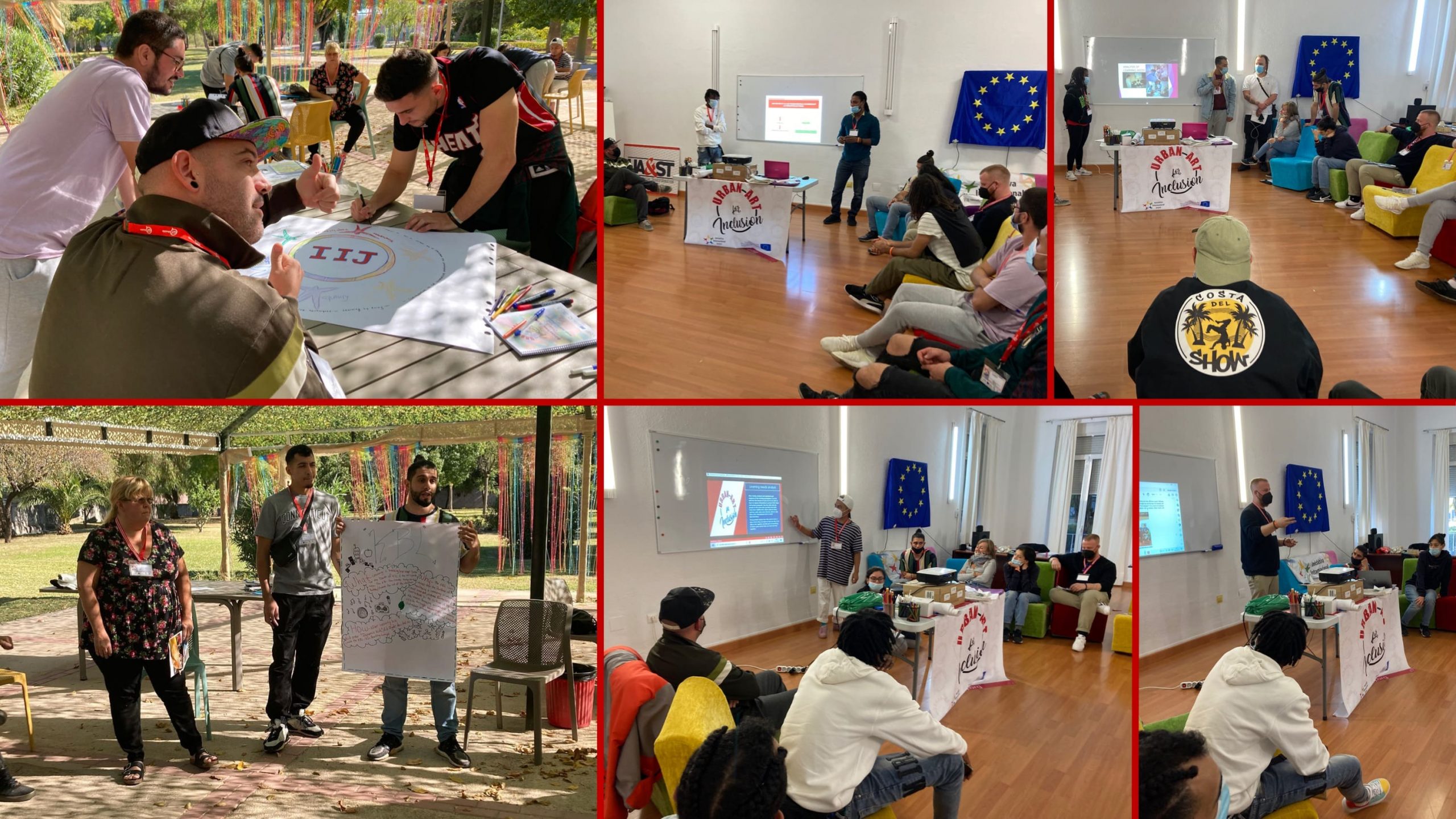
On day 3, we started with an adaptation of the learning game “Take a step forward” as we wanted to make participants reflect on the different situations people can face according to their background, characteristics, age, origin, etc. After an historical overview of human migration and its causes, we provided participants with key concepts related to the topic.
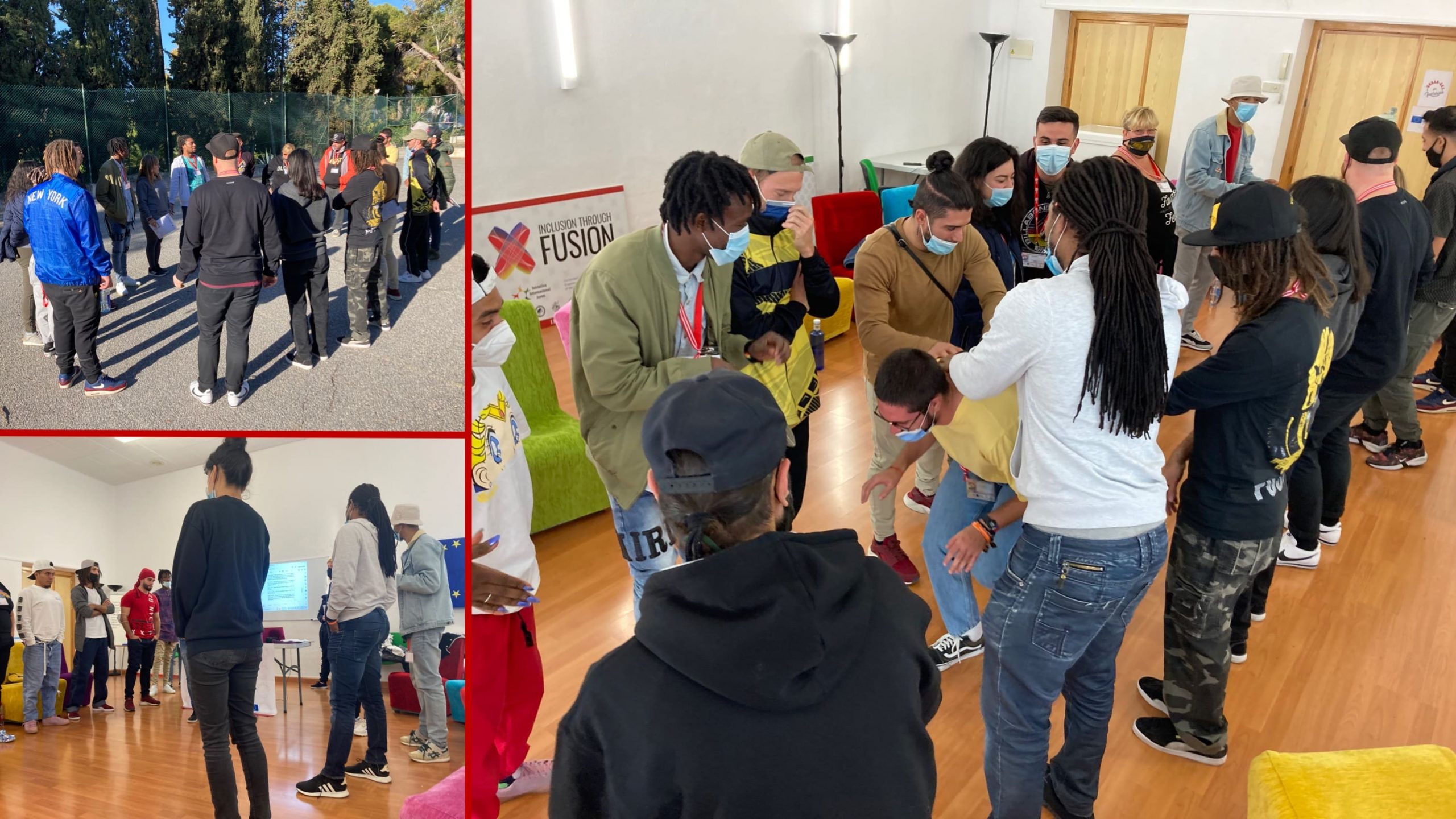
After this conceptualization and a brainstorming, we divided them in four small groups and, with the support of the graffiti writers, they had to express their creativity and feelings from the abstract concepts. The results of the small groups work (four drawings) have been used as the basis and inspiration for the large graffiti that the writers have painted the next day on one of the walls located at the entrance of La Noria. The graffiti represents an eagle breaking its chains to be free and it has also two eyes, one of them with a world as pupil and different words, such as peace, Interculturality and inclusion, written as a spiral. During the afternoon, after the division of participants in small groups and a first moment to think on their artistic creations, we organized a roundtable on social inclusion of ethnic minorities and migrants with different organisations and institutions of Malaga that works with young people, migrants, urban artists, etc.
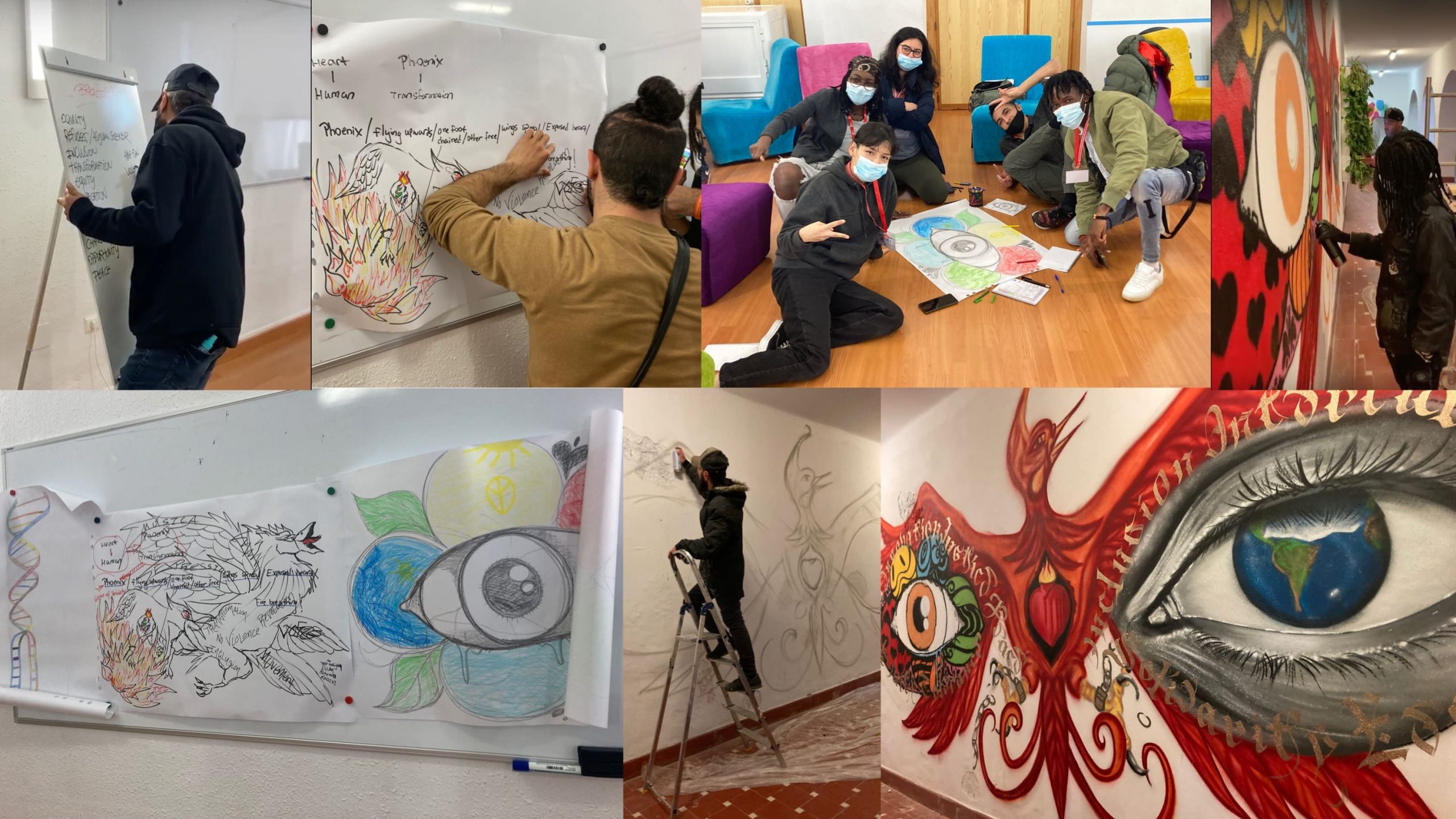
On November 17, participants learnt about different types of education, methodologies and evaluation and how to design a workshop using a pedagogical sheet. As practical exercise of the pedagogical module, they were divided in three small groups and they had to create a new workshop connected with one of the two topics:
‑Urban Art as a tool for inclusion;
‑United in diversity through urban art.
The new workshops were presented and some of its parts implemented having a direct feedback from other participants and trainers in order to implement it during the phase of Local Activities II. Participants had also the opportunity to take part in an improvisation theatre workshop where they learnt different techniques to strength creativity.
During the Training Course, after a cultural visit of Malaga city centre and Lagunillas, we carried out also a visibility activity in Lagunillas neighbourhood, with the collaboration of the local organisation “INCIDE”, which works closely with the most vulnerable communities in Malaga. Participants from the Training presented the artistic creations (a choreography and a song) to the public and had an artistic exchange with local artists and participants of the neighbourhood’s flamenco workshop. The graffiti writers had also the opportunity to create another piece of art representing inclusion. This visibility activity was a very gratifying experience for all parties and we could all feel the great inclusive power that art has.
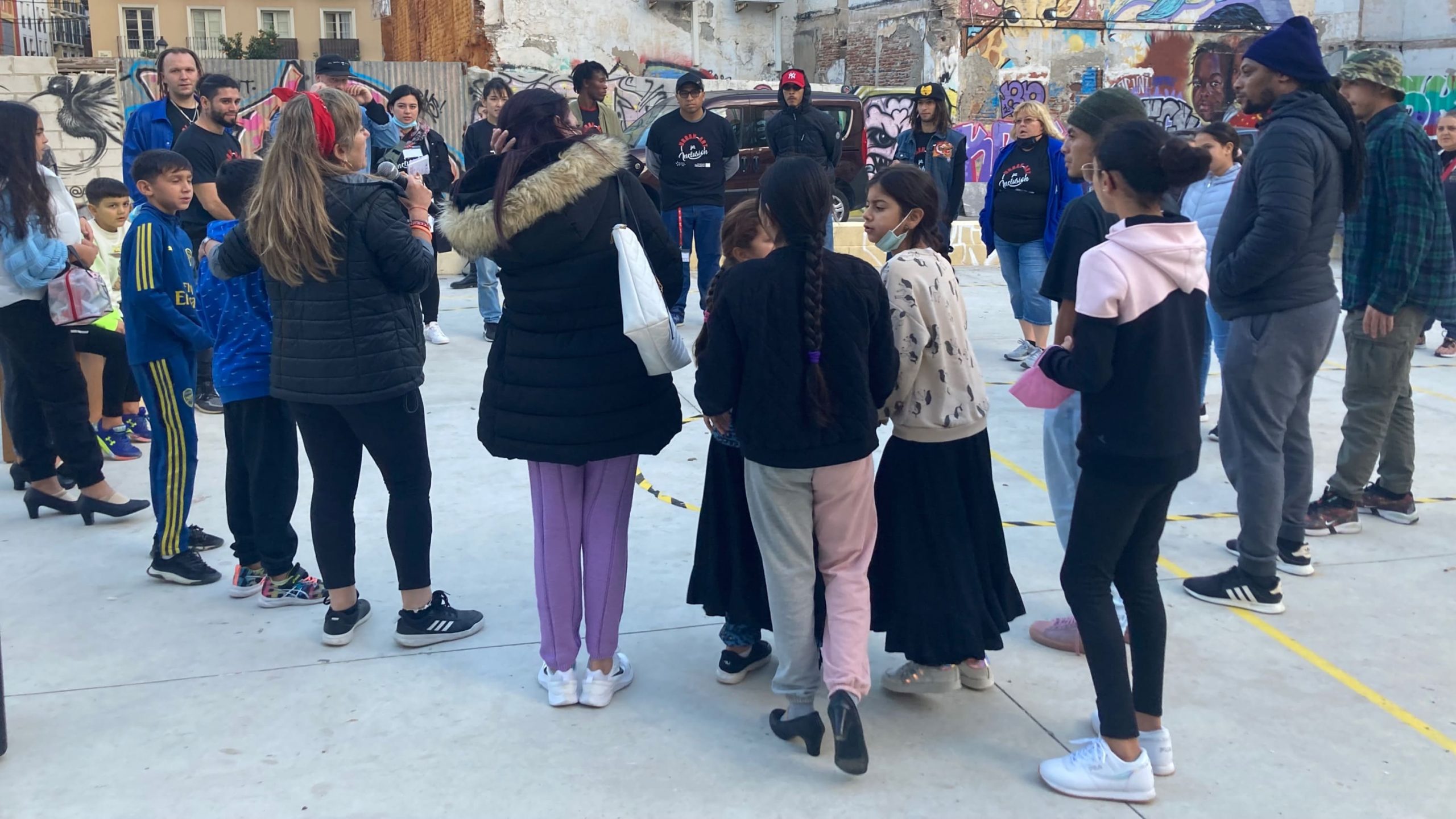
The next day we presented the new Erasmus+ programme, participants could share ideas of future project and reflect on the key competences they acquired. The Training ended with the evaluation session, where participants could learn different techniques and ways for evaluating activities, workshops or classes. All participants improved their competences, appreciated the methodology based on non-formal education and they think that the Training will be very useful for their personal and professional future.
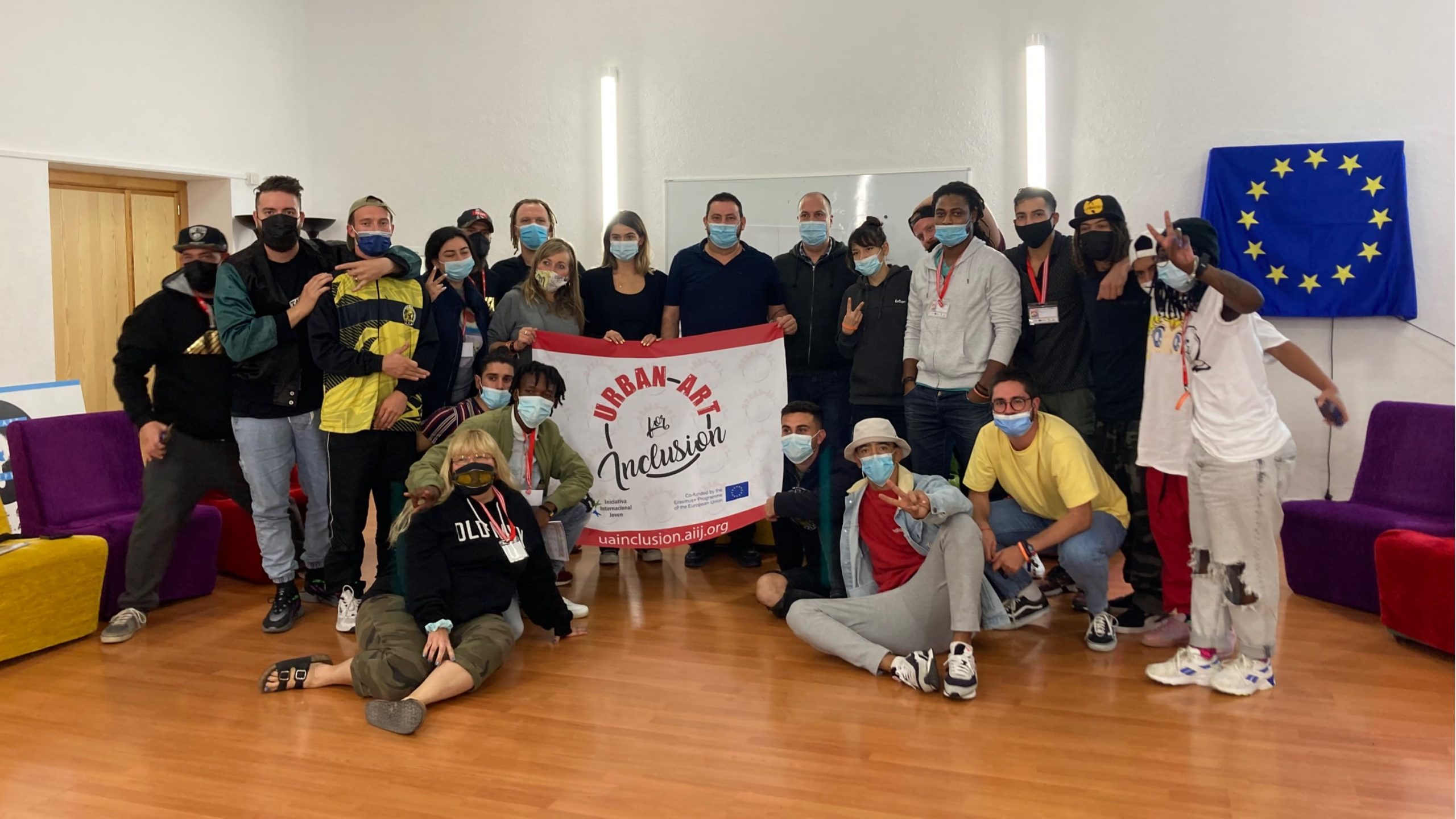
It was an emotional evaluation and closing session as many participants shared their feelings and underlined the great atmosphere and energy created within the group and how this Training has been a light in their path as individuals, as artists and as youth workers.
Super grateful for this Trip! It was one of the most incredible experiences of my life, and I will never forget the people I’ve shared laughs with and the children I hope we’ve inspired [Participant of Urban Art for Inclusion Training Course]

